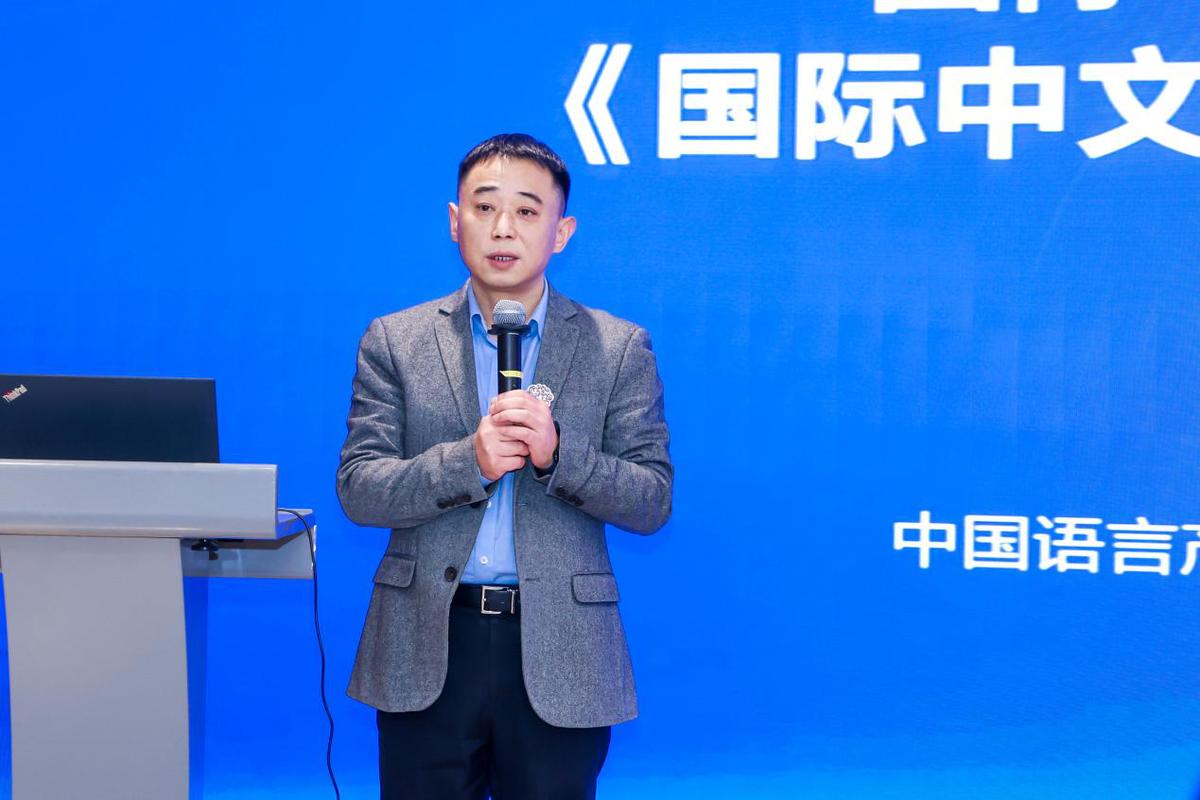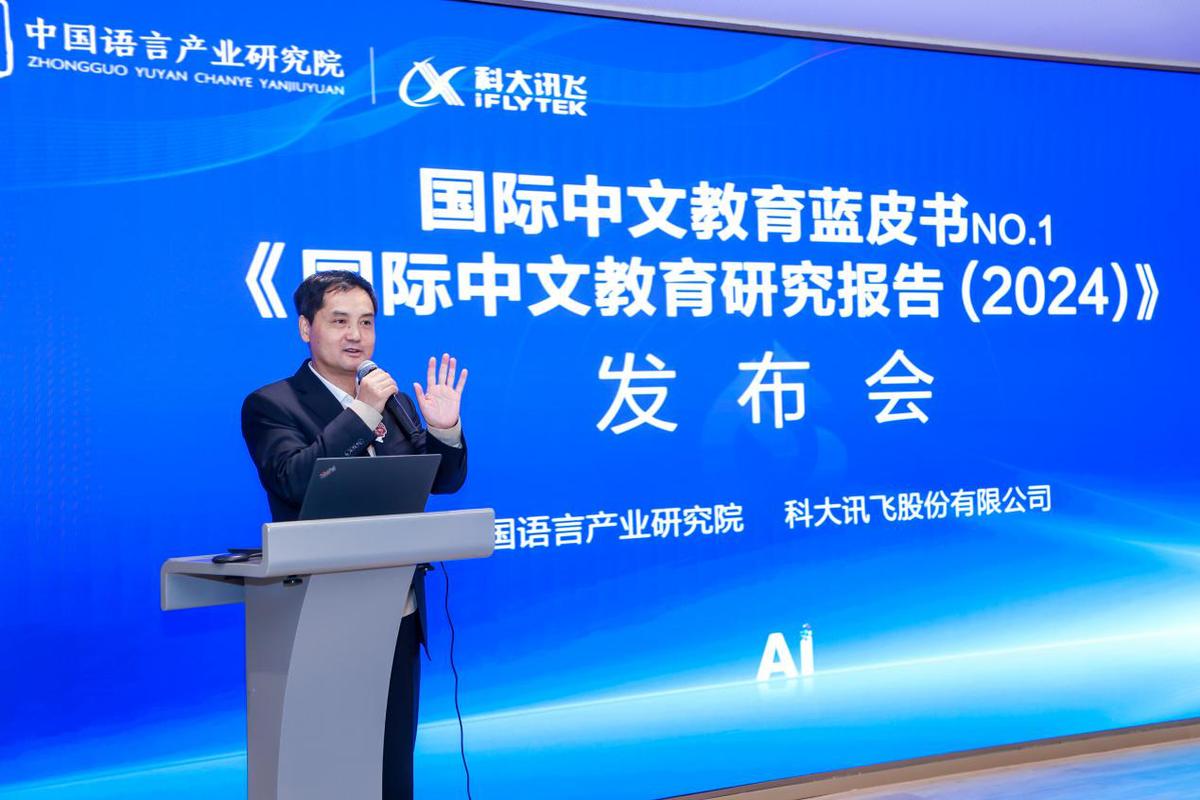The International Chinese Education Research Report (2024) is released in Beijing on Friday.
The first of its kind, in the form of the "No 1 blue book of international Chinese education" published by Social Sciences Academic Press (China), the report is compiled by the China Language Industry Research Institute of Capital Normal University, in partnership with iFLYTEK, an intelligent speech and artificial intelligence company headquartered in Hefei, capital of Anhui province.
Based on their research on global Chinese learning platforms and relevant literature of 168 countries and regions over the past three years, the researchers focus on the changes in supply and demand, business models, technology, services and products in the international Chinese learning market in the report.
The report suggests that operators of the Chinese learning platforms and agencies, be they of private or public ownership, should continuously explore the economic and cultural values of the Chinese language in the fast-changing market environment, promote the localization of their business, provide the target customers with tailor-made services in effective channels, and pay more attention to pooling different resources to increase the profit-making capacity of the industry to realize its sustainable development.

Li Yan, executive head of China Language Industry Research Institute of Capital Normal University, introduces the International Chinese Education Research Report (2024) at its release in Beijing on Friday. She is the chief editor of the report. [Photo provided to chinadaily.com.cn]
Li Yan, chief editor of the report and executive head of the CLIRI, stressed the importance of a paradigm shift of the sector from a primarily cultural cause funded by the state to an industry operating according to the market law.
"The report itself is a result of market-oriented interdisciplinary collaboration between institute and corporation, which incorporates angles of technology, industry, communication, linguistics, cultural studies and teaching methodology," said Li, "That, to some extent, reflects the opportunities and challenges faced by the international Chinese languages teaching and learning realm."
The report mainly consists of three parts the "digital products" in the international Chinese learning market, the "pattern innovation" of the industry, and some in-depth case studies on the Chinese language learning market in Egypt, Russia, Australia and Brazil.

Wang Zhanglong, iFLYTEK vice-president, introduces the company's strengths in technology and market in its cooperation with CLIRI in the project. [Photo provided to chinadaily.com.cn]
According to Wang Zhanglong, iFLYTEK vice-president, and He Hongzhi, president of CLIRI — both are co-directors of the editorial board of the report — it is iFLYTEK's technological strengths in personalized language education and the institute's research strengths in the studies of language that have prompted their cooperation in the research project. And they say the collaborative project will extend into the future with more reports of the series to be published in the coming years.

He Hongzhi, president of CLIRI, makes a speech at the release of the report. [Photo provided to chinadaily.com.cn]
"The Chinese language learning has every reason to be regarded as a part of the international trade in services," said He Hongzhi urging the industrial practitioners to run it as not only a traditional education cause but also a business of the cultural industry, which he believes is necessary to keep its healthy and sustainable development in the long run.
Both CLIRI and iFLYTEK hope the research can help form a reliable source of references for the market players and policymakers and inspire them to make joint efforts to take advantage of the new technology revolution to form a sustainable global Chinese language learning sector, which is expected to be conducive to promoting not only Chinese language but also the spread of Chinese culture and mutual learning between civilizations across the world.